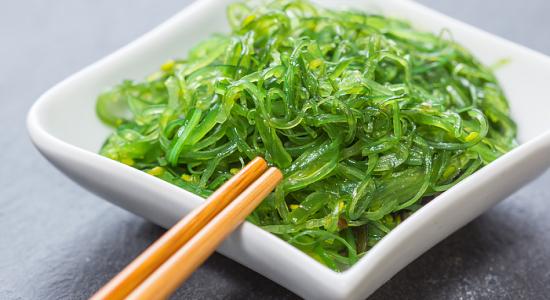
Nori, wakame, kombu. Behind these barbaric names are hidden food algae with amazing benefits. Bio à la Une takes stock
Widely acclaimed in cosmetics, the reputation for the benefits of seaweed is well established. If the French do not hesitate to spread it on the face and body, the algae rarely reach the plate. However, algae have an undeniable nutritional interest.
Exceptionally rich in vitamins, minerals and trace elements, these sea vegetables are precious health allies. Thus algae have a good place in the Japanese diet. And it is probably by chance that the land of the rising sun is one of those “blue areas” where we find the greatest number of centenarians. Still too little known by the French, discover these edible seaweeds with incredible nutritional virtues.
Nori
If that name may not mean anything to you, many of you have already eaten it. Sushi lovers in particular. It is indeed the dark colored alga which generally surrounds maki-sushi. Easy to use, its taste is relatively neutral. It is therefore the ideal algae to gently introduce sea vegetables into our diet.
In addition to their light iodine flavor, nori seaweed is a concentrate of nutrients. Their tissues contain more protein than meat (almost 30%) and almost ten times more calcium than milk. It is also an important source of vitamins A, C, E and B. Just 1 g of dry nori is enough to cover 30% of our daily requirement of vitamins B12. And that's not all. This alga contains no less than 10 essential amino acids including glutamic acid or taurine. To make matters worse, a serving of nori is a source of copper, iron, manganese, zinc or iodine. In Japan, the consumption of nori is considered to combat cardiovascular disease, diabetes and to combat certain hormone-dependent cancers such as breast or prostate cancer. With more than 30% fiber, nori is ideal for aiding digestion.